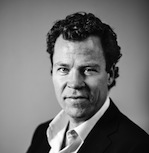
Energy efficiency first means citizens first
Lower prices for consumers, a safer energy supply and better health are all powerful reasons for the EU to focus on energy efficiency. The energy ministers in Council should approve of Parliament’s level of ambition in the months to come.
The European economy is finally back on track after a decade of low and inconsistent growth. However, across our union, citizens still struggle to make ends meet.
Energy costs remain one of the key concerns, as many citizens spend approximately 10% of their income on paying energy bills even when winters are warm and supply is stable.
As climate change entails more extreme weather conditions that accelerate the demand for heating and cooling, consumers’ energy costs are likely to remain high.
Research shows that buildings account for 40% of European energy consumption. Therefore, all new buildings are already required to follow high standards of energy efficiency.
However, this does not suffice: In 2050 more than three quarters of our current buildings still stand, most of which are not energy efficient at all.
Renovating our existing building stock in an energy efficient manner is therefore crucial, if we are to reduce the energy costs for Europeans.
Investments in better insolation, accurate temperature control and improved heating and cooling are not only sound economics.
Society overall benefits, when consumer get more money to spend on goods and services, which in turn improves economic growth and helps reduce unemployment.
These ambitions require policies in order to become reality. In the EU, we already took the first important step, when we finalized the Energy Performance of Buildings Directive earlier this year.
It focuses on energy efficiency of both public and private buildings, and sets new standards that will reduce energy consumption and costs.
In order to take the next step, it is crucial that the Energy Efficiency Directive is signed using the same ambitious ink.
Neither free nor fair
This is not only about the money. It is also about our freedom and independence. In the EU, we have come a long way securing the safety, health and well-being of our citizens, who have never lived longer, better and more affluent lives than now.
However when we look to the east, we see troubling signs of aggression and uncertainty that we need to remedy.
The government of Russia consistently threatens our infrastructure, including recurrent attacks on our IT-systems. Domestically press freedom is under pressure, corruption is the order of the day and peaceful civil society organisations are banned.
It was hardly surprising that Mr Putin’s re-election was neither free nor fair.
However, the criticism of Putin’s Russia would not be as relevant to this publication if it were not for our reliance on the country’s energy.
Several EU Member States remain almost entirely dependent on Russia’s oil, gas and coal.
Looking at how this dependence has been used as leverage against European countries in the recent past, it is of utmost importance to curtail this trend.
While the EU has been remarkably consistent in its sanctions against Russia, it was the low oil prices that hit the Russian economy the hardest.
This works as a useful reminder of what Europe needs to do, if we are to properly sanction the actions of the Russian government: stop buying Russian energy.
As Russia’s number one, two and three on its list of exports, reducing the consumption of oil, gas and coal will be at least as effective as any set of sanctions.
The good news is that we already have the tools to do so. By investing in energy efficiency, we can significantly reduce the reliance on Russia. Thereby we improve the safety of our citizens, who no longer need to worry that their energy supply depends on the Kremlin.
The green toolbox
While Putin remains a security risk for our citizens, the main causes of premature deaths in the EU relate to respiratory disease, heart diseases and cancer.
While these have many different causes, air pollution and bad indoor climate are definitely two of them.
As traffic jams in cities worsen and the consumption of fossil fuels increases, this problem is unlikely to diminish.
Therefore, we need to reduce our consumption and reform the way we live and organize our societies.
Fortunately, the green toolbox is already available. By investing in insulation, temperature control and better heating and cooling, we do not only help save our planet for the next century.
We also help make a difference for our struggling friends and neighbours this year.
Thus, energy policy is not merely about economics and safety, but fundamentally about the health and well-being of our citizens.
Earlier this year the European Parliament confirmed its commitment to higher targets for energy efficiency. Currently the ministers in Council are reluctant, citing high costs and political scepticism.
There is no doubt in my mind, that Council should embrace this opportunity to provide citizens with lower costs, safer energy supply and healthier lives.




